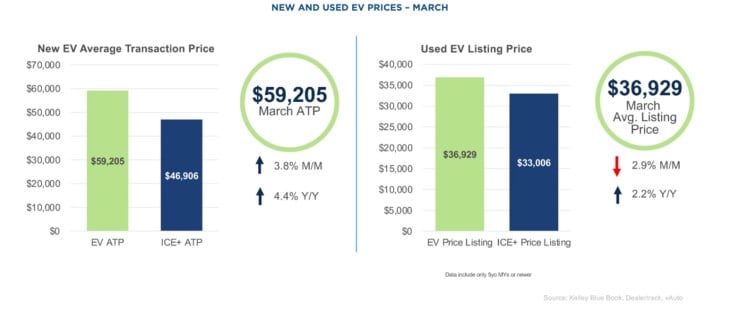Electric cars generally cost more than conventional automobiles. But the pricing gap between the two is growing wider.
According to the latest data from Kelley Blue Book, the average transaction price for electric cars was $59,205 in March, 7% higher than the same time last year. That compares to gas-powered vehicles at $47,462, or about flat year over year. The industry’s electric vehicle (EV) leader, Tesla, had average transaction prices of $54,582, a 3.5% increase from the year earlier.
In general, electric cars start at $29,280, including destination charges, for the cheapest electric car, the 2025 Nissan Leaf, to upwards of $100,000 for a luxury EV like the 2025 Mercedes-Benz EQS SUV (starts at $106,400, including destination charges).
The average list price for used electric cars in March was $36,929. Prices are up 2.2% year over year but down 2.9% compared with February.

The federal government offers qualified buyers electric car incentives of up to $7,500 for select new fully electric, plug-in hybrid, and fuel-cell vehicles. Those looking to lease an EV may find a dealership offering qualified buyers the same tax credit. Buyers looking for used electric cars may qualify for up to a $4,000 credit on specific models older than two model years. That, too, helps lower the price and close the gap in the pricing of electric vehicles compared with their gas counterparts. However, EV incentives may soon change if the White House follows through with its promise to pull the incentives.
Another cost to consider is that fully electric cars run on electricity and do not need gasoline, regular oil changes and other maintenance that gas cars require. Typically, fuel costs more than electricity, which is another money saver for people who drive electric vehicles.
RELATED: How Much Does It Cost To Charge an Electric Car?







